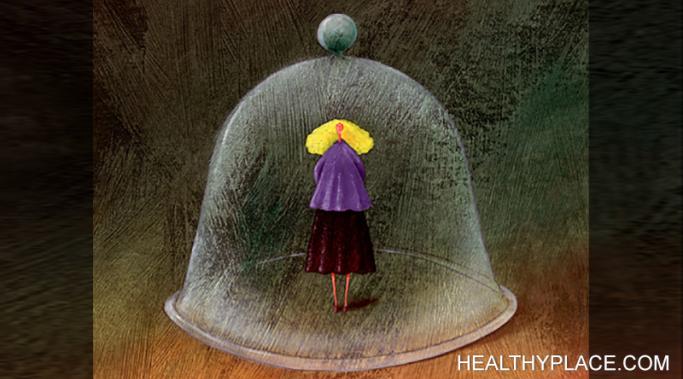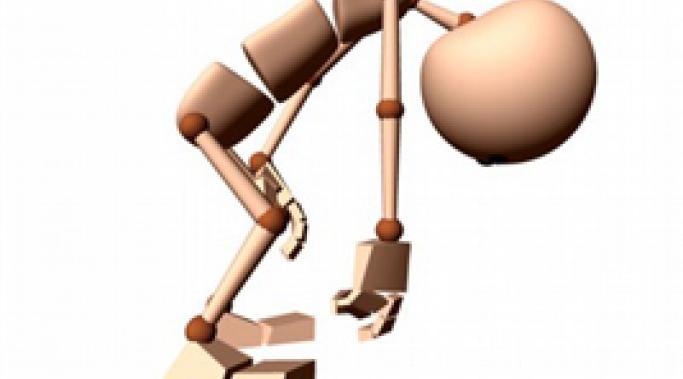Blogs
A good portion of my writing focuses on living with mental illness, accepting the diagnosis and practicing self-care. I touch on some serious topics: Psychiatric medication, issues with your mental health team, learning to live with mental illness and recovering relationships that were damaged along the way...
When I was quite ill with anorexia, I presented myself as detached and invulnerable. Nothing could hurt me. I was strong...I was beyond human feelings...I was beyond human needs because I didn't need much food/sleep/love that most humans required.
It was all an act. I was—and still am—immensely vulnerable.
I'm just afraid to let people know this.
According to a recently released survey conducted by The National Association of National Associations, your choice of vehicle may be telling the world a whole lot more about you than you think, in fact, it might even reveal what, if any, form of mental illness hounds you, dogs your every step, and accounts for ruff patches in your life.
Ashton Frampton, spokesman for the HMMA (Heavy Mental Motoring Association), which sponsored the study, put it like this. “While automobile ownership is not proof of insanity, we have noticed that many different forms of mental illness track closely with specific cars. To start with a very simple example, every Hum V owner in the study was plagued by delusions of other people’s grandeur.
Anxiety never comes out of the blue, as much as it seems that it does. There is always a context to it, an anxiety trigger. Always some perception of vulnerability that triggers the physiological response and the emotional response. But have you wondered why we get anxiety in the first place?
How Do We Get Anxiety?
Anxiety can be recruited into our lives in a variety of ways, but usually something happens to us that makes us feel vulnerable. It could be something like a traumatic experience: sexual abuse, war, being mugged, a car accident, etc. Or it could be something else, like an illness (from the flu to cancer), having a conflict, a break up, embarrassment, hearing a scary story, etc.
Self-care was a concept I used to discuss with clients but never practice; it was not a priority for this busy girl. Other people, my career, my to-do list, and life interfered. Even if I was doing something for myself, it was coupled with my internal dialogue panicking about the time I was away from work, future tripping about what was to come, and never mindful of the moment. I was miserable and knew that an important component of my life was missing, real self-care.
We often struggle with how to help a depressed friend. We don't want to minimize his mental illness. We know that she can't just snap out of it by going outside or smiling more. When you know how to help a depressed friend, you realize that helping him through the tough episodes takes time. Silence. Hand-holding. Maybe even folding some laundry. And how you help your depressed friend can be the difference between life and death.
Many people here have read Robert Whitaker’s Anatomy of an Epidemic: Magic Bullets, Psychiatric Drugs, and the Astonishing Rise of Mental Illness in America (New York: Crown Publishers). And some of these people will likely claim that the book changed their lives or, at the very least, their view of psychiatry and psychiatric medication.
Well. Ho there. You would think with such a ground-breaking book I would be all over it.
Guess again.
I refuse to read Anatomy of an Epidemic. And yes, some people will fault me for this. But I have a good reason. I refuse to read Anatomy of an Epidemic as I have no desire to be outraged at a misunderstanding of science for 416 pages.
The Poster Child: Robert Whitaker
Robert Whitaker is the poster-child for antipsychiatry, which is his prerogative. If he enjoys talking to throngs of antipsychiatrists then I say, better him than me.
And part of his criticism of psychiatry is well-deserved. I would say that being concerned with the use, and possibly overuse, of some medications and the prescribing of heavy psychotropic medications to children is quite warranted. I take no issue with the fact that debate and concern is appropriate here.
What I do take concern with is his contention that psychiatric medication actually worsens treatment outcomes and causes disability. This is the reason why antipsychiatrits love him and it’s the reason I probably couldn’t stand to be in the same room as him.
When people ask what I do, I tell them I run a freelance writing business. I'm too proud--and afraid--to tell them my major income comes from Social Security disability. If I do that, I often hear "You look fine to me." Then I'll need to explain I'm on Social Security disability due to a psychiatric condition, in which case I fear hearing "Isn't that all in your head?" There's a heavy stigma against receiving social security disability, and a bigger stigma against receiving social security disability for a mental illness.
If you have ever dealt with addiction then you know how devastating it can be. It has the ability to strip a person of any sense of decency, reducing one to an animalistic level. When I look back on all of the despicable things I did to fuel my addiction it filled me (initially) with a sense of guilt, shame, and self-loathing. It got me to a place where I did not know where to turn or what to do. But….I did pray.
When I think of mental illness I wonder if I should have a t-shirt created with a couple choice phrases. The front would state: I am Completely Exhausted. And the back of it? The back of it would state--in bold and angry script, I'm Sick and Tired of Being Sick and Tired! These phrases have, in part, defined my life. My entire life. Since I was old enough to throw things and scream for hours. Since I was a child. Before they gave me cocktails of medication, age twelve, before I realized that I was sick and tired of being sick and tired--and exhausted!









